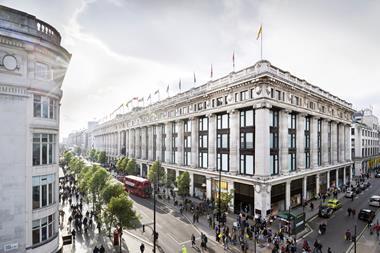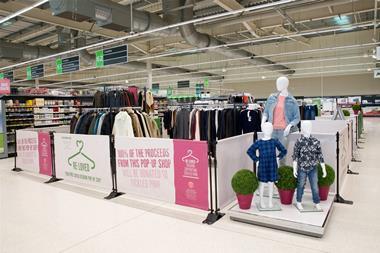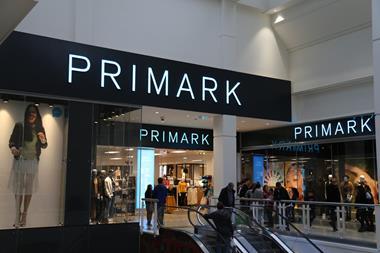With retail’s environmental impact front of mind for consumers and retailers alike, Accenture’s Siobhán Géhin explains why a circular business strategy is key to staying competitive.
Sustainability – once considered by retailers as a hefty cost tied to a fleeting consumer trend – is today becoming more widely recognised as a source of competitive advantage that can help drive top-line growth.
According to Accenture’s study on corporate sustainability, 99% of chief executives from the world’s leading organisations say sustainability is critical to their future success. The majority also see a clear link to business value.
“99% of chief executives from the world’s leading organisations say sustainability is critical to their future success”
Change in the industry is critical, particularly as research estimates that more than 300,000 tonnes of clothing every year is incinerated or sent to landfill, and around 269,000 tonnes of macro- and microplastics are floating in the open ocean.
Tolerance for outdated practices is waning and the problem is highly visible.
Some of the biggest retailers and fashion brands, from Inditex and H&M to LVMH, continue to make bold moves as they supercharge sustainability commitments.
These companies are thinking holistically about integrating sustainability into their business strategy and operations – for example, by introducing circular business models.
The consumer’s choice
Consumers, too, are becoming increasingly aware of their environmental footprint and are being urged to alter their behaviour around consumption.
“62% of UK consumers prefer to buy from companies that are reducing their use of plastics and two thirds want greater transparency in how companies source their materials”
According to Accenture’s latest study, 62% of UK consumers prefer to buy from companies that are reducing their use of plastics and two thirds want greater transparency in how companies source their materials.
To make it easier for consumers to identify sustainable brands and products, luxury fashion retailer Yoox Net-a-Porter recently announced a new platform, Net Sustain – an edit highlighting brands that meet criteria regarding sustainability, making ethical shopping easier.
Supermarkets, too, are responding by banning brands that use excessive non-recyclable packaging and introducing new shopping methods such as ‘naked packaging’ and refillables.
Some are also trialling IoT technologies to give consumers greater insight into how they can best recycle products they’ve purchased.
Driving positive change
In this era of responsible retail, the biggest challenge facing retailers is how they can reinvent operating models to accommodate sustainable practices and empower consumers by rewarding them for their sustainability efforts.
“There has never been a better time to commit to the circular economy”
Retailers looking to improve their environmental footprint, reputation and overall competitiveness should consider:
- Personally and publicly committing to sustainability. Responsible leaders should take sustainability personally and advance the circular economy, holding people accountable for sustainability goals and forcing the discussion with investors, to lead to positive change.
- Adopting circular business models. These models can deliver tremendous value, enabling retailers to eliminate waste, drive positive impact across the value chain and improve competitiveness. With the financial viability of such models proven, retailers must choose those that will deliver the biggest rewards.
- Rewarding consumers for sustainability commitments. There is an opportunity for retailers to build long-term loyalty by empowering and rewarding customers’ ethical behaviour. This can be done through eco-incentives, reuse and recycle schemes, and broader ecosystem rewards.
There has never been a better time to commit to the circular economy. Technological advances, infrastructure improvements, innovative start-ups, circular design practices, consumer behaviours and regulatory pressure are creating an environment where retailers can pursue circular initiatives with confidence.
Circular business models will play an integral role in the transformation of the industry, but it will take bold leaders to take full advantage of the opportunity.

Siobhán Géhin is a managing director in Accenture Strategy’s retail practice, where she advises retailers on growth and transformational strategy .




























